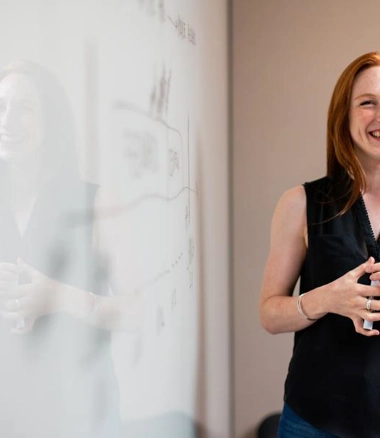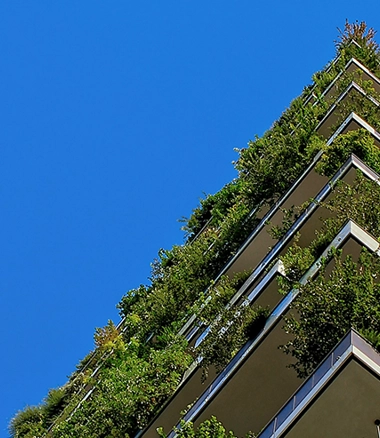
Sustainability has become somewhat of a buzzword. Yet within the engineering space, it represents a trend that is reshaping our approach to the built environment: the rise of sustainability consulting.
Far from a fleeting trend, this burgeoning field is a profound pivot towards a greener, more sustainable future. But why is sustainability consulting in engineering gaining such momentum, particularly in Australia, and what makes it an increasingly attractive career choice?
Let's delve into the dynamics at play and explore the multifaceted role of sustainability professionals in the engineering sector.
Why Is Sustainability Consulting in Engineering on the Rise?
The push towards sustainability is no longer a niche concern but a global imperative, underscored by a significant shift in both consumer and business attitudes towards environmental sustainability. A study by HP Australia and Planet Ark revealed that over 90% of Australian consumers and businesses are concerned about environmental sustainability, highlighting a strong societal push towards greener practices. This widespread concern translates into a demand for careers that not only offer economic but also environmental value, with sustainability consulting in engineering emerging as a key player in addressing these concerns.
Driving this growth is the realisation among businesses of the financial and reputational benefits of adopting sustainable practices. Sustainability consulting firms, such as KPMG Australia, play a critical role in identifying climate change and sustainability risks and opportunities for businesses, helping them navigate the increasingly complex landscape of environmental performance and social impact. These services are vital for companies looking to manage non-financial issues that have significant implications for corporate value creation and long-term success.
In engineering, this has translated into an increasing demand for professionals who can guide projects not only to economic success but to environmental stewardship as well. Statistics and market analyses underscore this shift: a growing percentage of engineering projects now integrate sustainability principles from the outset, necessitating a breed of engineers adept in this sphere.
But what's driving this trend? A combination of regulatory pressure, public awareness of climate change, and the economic benefits of sustainable practices are key factors. In Australia, stringent environmental regulations, alongside a societal shift towards green living, have made sustainability consulting an essential part of engineering projects.
Factors Driving the Growth of Sustainability Consulting Roles in Australia
Australia's unique environmental challenges, from water scarcity to bushfire management, have made it a hotbed for sustainability innovation. The Australian government's commitment to the Paris Agreement and its own sustainable development goals has further propelled the demand for professionals who can navigate the complex terrain of environmental regulations while optimising for efficiency and resilience.
Moreover, the economic argument for sustainable practices is compelling. Energy-efficient buildings, for example, not only reduce carbon footprints but also offer long-term savings and increase property values. This economic incentive, coupled with public and private sector commitments to sustainability, is driving the growth of sustainability consulting roles across the country.
Why Is It an Increasingly Attractive Career?
So, why are more engineers gravitating towards sustainability consulting? The answer lies in a blend of idealism and pragmatism. On one hand, engineers are inherently problem-solvers who aspire to build a better world. Sustainability consulting offers a direct pathway to impact, allowing engineers to contribute to the global challenge of climate change actively.
On the other hand, sustainability consulting is intellectually stimulating and offers a broad scope of work, from energy audits to sustainable materials sourcing. It's a career that demands continuous learning and adaptation, making it both challenging and rewarding.
Moreover, the environmental consciousness among Australians is influencing employment preferences, with a majority expressing a strong preference or desire to work for companies that promote environmentally sustainable practices. This trend is particularly pronounced among younger generations, suggesting a future workforce that prioritises sustainability in their career choices.
How Does the Role Relate to Other Engineering Jobs in the Built Environment?
Sustainability consultants, Environmental Engineers, ESG Advisors and Energy Modellers play a pivotal role in the built environment, bridging the gap between traditional engineering disciplines. They work closely with architects, civil engineers, and construction managers, integrating sustainable practices into every phase of a project, from design to decommissioning. This holistic approach not only ensures environmental compliance but also enhances the overall value and resilience of the built environment.
Career Pathways for Sustainability Consulting and Related Roles
The journey into sustainability consulting and related roles can follow various paths. While some professionals transition from traditional engineering roles, bringing a wealth of technical knowledge, others might enter from environmental science backgrounds, offering a deep understanding of ecological principles. What's common across these pathways is the necessity for a strong foundation in engineering principles, coupled with specialised knowledge in sustainability.
Further education, such as master's degrees in sustainable development or environmental management, can bolster one's credentials, but hands-on experience through internships and project work is invaluable. Networking within professional circles and staying abreast of the latest sustainability trends and technologies are also crucial steps for aspiring sustainability consultants.
Why Do People Become Sustainability Consultants?
The motivations for becoming a sustainability consultant are as diverse as the field itself. For many, it's a calling driven by a deep concern for the environment and a desire to make tangible contributions to mitigating climate change. For others, it's the intellectual allure of tackling complex, multidisciplinary challenges and the opportunity to be at the forefront of sustainable innovation.
The Most Important Skills Sustainability Professionals Need to Develop
Beyond technical expertise, sustainability professionals must hone a suite of soft skills to excel in their roles. Effective communication is paramount, as consultants must articulate complex sustainability concepts to non-experts and persuade stakeholders of their importance. Problem-solving and critical thinking are also crucial, as is the ability to adapt to new information and technologies.
Leadership and project management skills enable sustainability consultants to drive initiatives and coordinate with diverse project teams. Emotional intelligence, particularly empathy, is important for understanding and addressing the concerns of various stakeholders.
Developing Skills and the Importance of Personal and Professional Development
Sustainability consultants must be lifelong learners, continuously updating their knowledge and skills. Professional development can take many forms, from formal education and certifications to workshops, webinars, and conferences. Personal development, such as improving time management and resilience, is equally important for navigating the challenges and uncertainties inherent in sustainability consulting.
For sustainability consultants in Australia looking to advance their knowledge and skills, there are several reputable learning resources and professional development training courses available:
GRI Academy: Offers a comprehensive Professional Certification program in sustainability reporting according to the GRI Standards. The program includes courses on sustainability reporting, human rights reporting, and integrating the SDGs into sustainability reporting, among others. This platform allows for online self-paced learning or a blended, instructor-led approach.
Environment Institute of Australia and New Zealand (EIANZ): Provides a platform for environmental practitioners at all career stages. EIANZ offers certifications, such as the Certified Environmental Practitioner Scheme, and hosts various events and webinars that could be beneficial for professional development.
Infrastructure Sustainability Council: Focuses on the infrastructure sector, offering courses on the basics of infrastructure sustainability and accreditation for sustainability professionals. Their programs are designed to enhance knowledge and keep professionals up-to-date on the latest in infrastructure sustainability.
Swinburne Professional: Part of Swinburne University, offers a broad range of short courses, qualifications, diplomas, certificates, and pathways to master’s degrees. Their professional development courses cover various areas including business, leadership and management, health and safety, and more, with flexible delivery options to suit different schedules.
Training.com.au: Lists various sustainability courses in Australia for 2024, including Certificates and Diplomas in Sustainable Operations and Environmentally Sustainable Management. These courses are offered in different study modes including online, in-class, and blended options to cater to varied learning preferences.
These platforms and institutions provide a mix of foundational and specialised courses that cater to the diverse needs of sustainability consultants. Whether you're looking to deepen your expertise in sustainability reporting, gain recognition as a certified environmental practitioner, or stay abreast of the latest sustainability practices in infrastructure, there are ample opportunities for professional growth and development in the field of sustainability consulting in Australia.
Finally, mentorship and peer learning are invaluable resources for both personal and professional growth. Engaging with a community of practice not only facilitates knowledge exchange but also provides support and inspiration.
Navigating the Future
As the world grapples with unprecedented environmental challenges, the role of sustainability consultants in engineering has never been more critical. But it's a role that demands not just technical prowess but a broad spectrum of soft skills and continuous adaptation to change. For those drawn to the field, the journey is both a personal and professional quest, one that offers the chance to leave a lasting impact on the planet and society.





